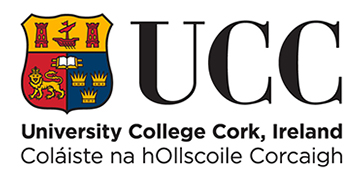9 September 2021
By Elaine Murphy
elaine@TheCork.ie
Research identifies being female, unemployed, having lower levels of education, cancer type and stage of progression are risk factors for cancer patients experiencing pandemic stress
Cancer patients in lower-income households and those experiencing economic or financial burdens were more likely to experience moderate to severe levels of anxiety during the pandemic, a seminar on the impact of COVID-19 on cancer patients and survivors will hear.
The finding is one of a number of results that will be presented at a virtual seminar on September 16, jointly hosted by the Department of Economics, Cork University Business School (CUBS), University College Cork (UCC) and Breakthrough Cancer Research and chaired by broadcaster Matt Cooper.
The summit will hear that researchers found that the economic impact of the pandemic in terms of job losses and the resultant financial crises for families was a contributing factor to the stress suffered by cancer patients, a burden disproportionately shouldered by those in lower-income households.
Cancer patients experiencing stress during the pandemic tended to have lower resilience and experience social isolation and financial toxicity. The risk factors identified for these adverse outcomes included being female, unemployed, having lower levels of education, cancer type and stage of progression, for example, metastatic cancer. These results suggest social and economic inequalities exist, which is compounded by a lack of support services for patients during the disruption caused by the pandemic.
Researchers from the Department of Economics, CUBS at UCC, in collaboration with Breakthrough Cancer Research, have been investigating the impacts of COVID-19 amongst cancer patients and survivors from an economic and social perspective.
The research team, led by Dr Aileen Murphy, a Senior Lecturer at the Department of Economics in CUBS at UCC examined internationally published studies and reports to investigate these impacts. Over 150 studies from over 30 individual countries were identified and analysed by the research team.
Dr Murphy said:
“We anticipate this research, and the seminar will lead to an important and energetic discussion, generating important reflections on how care for cancer patients undergoing treatment and survivors was affected by the pandemic both from an economic and social perspective.”
Dr Frances Drummond of Breakthrough Cancer Research said:
“The seminar will provide reflections on how care for cancer patients undergoing treatment and survivors was affected by the pandemic, to inform future contingency plans in the sector and innovation in how cancer care is delivered.”
Findings reveal many of the physiological concerns or worries experienced by patients and survivors were in response to treatment delays owing to COVID-19. Decision making surrounding treatment delays or cancellations were often made by the hospital/health system but in some cases, patients were ‘no shows’ owing to fears associated with COVID-19.
Compounding this, patients reported fear of disease progression, as well as loneliness, social isolation, anxiety, and general mental health burden during the pandemic. Patients with metastatic cancer in particular were impacted by treatment delays. A worrisome situation as such treatment changes are a risk factor for physiological distress.
Recognising a problem with accessing services, several studies revealed that some care transitioned to online/telephone consultations. As the pandemic advanced such transition reduced treatment delays in some areas of care and should minimise long-term impacts. However, initiatives were not uniformly applied and where available access barriers persisted.
The findings also suggest social and economic inequalities exist. These results suggest social and economic inequalities exist, which is compounded by a lack of support services for patients during the disruption caused by the pandemic.
The study and seminar are funded via the MSD Oncology Policy Grant program.
At the virtual seminar Dr Murphy and her colleagues will present the key findings of their research and invited stakeholders from policy, clinical and patient groups will reflect on the results and share their own experiences from an all-Ireland perspective.
This is timely given COVID-19 contribution to delays in screening programmes and deferred implementation of the Irish National Cancer Strategy. To date, only €6.3million of the planned €46million funding has been allocated. It is anticipated such delays will increase morbidity and mortality. The results of this study can inform the continued implementation of the National Cancer Strategy and operationalisation plans for Ireland’s blueprint for universal health care, Sláintecare.
The seminar will take place virtually on 16th September 2021 from 11am-1pm. To register go to https://conference.ucc.ie/seacovid19/impactofcovid19cancer/Site/Register


